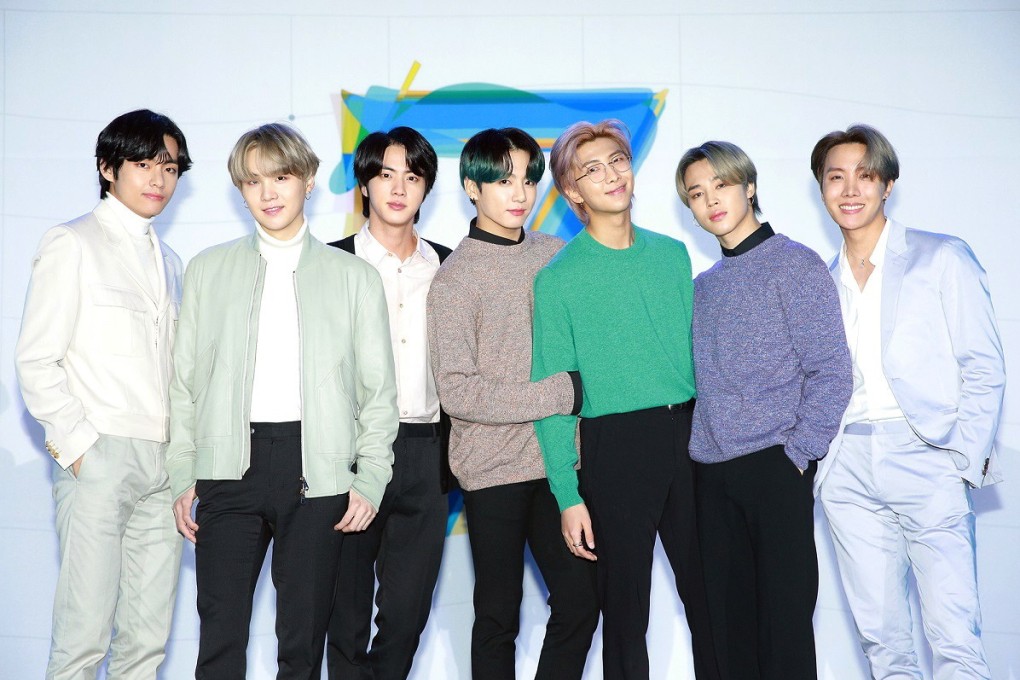Advertisement
Coronavirus: BTS’ world tour delayed as K-pop industry reels from axed concerts
- The boy band is among a host of popular artists that have cancelled events in South Korea and overseas, leaving entertainment firms bracing themselves for sharp losses
- Meanwhile, Daegu-born stars, including Oscar winner Bong Joon-ho and BTS member Suga, have each donated US$83,000 to the virus-stricken city’s relief efforts
Reading Time:4 minutes
Why you can trust SCMP

South Korea’s massive entertainment industry is bracing itself for a sharp drop in earnings as performances by the country’s most popular artists, including K-pop sensation BTS, are being cancelled or postponed amid the coronavirus outbreak.
Days after the boy band performed their new single, On, in a special episode of Jimmy Fallon’s The Tonight Show in New York, they axed three concerts in Seoul meant to kick off their new world tour on April 11.
BTS’ last global tour, Love Yourself: Speak Yourself, sold about 49,000 tickets per show and earned an average of US$5.8 million in profits, according to Billboard. The tour concluded with a three-night show in Seoul last October that raked in US$832 million and drew a total audience of 130,000, a research team at Korea University’s School of Business estimated.
The band’s Map of the Soul Tour is now scheduled to start on April 25 in Santa Clara, California – but that also seems to be in doubt, as the state is among many others in the United States that have declared a state of emergency over the pandemic.
Advertisement
On Tuesday, Coachella – one of the biggest music festivals in America – was postponed from April to October. Many K-pop fans worldwide were anticipating the reunion of megastars Big Bang at Coachella after controversies, including a prostitution scandal, stopped the group from being active since 2018.

Advertisement
As the Korean economy reels from the escalating outbreak, Chae Jung-jae from the Ministry of Culture said he did not know how much pain the entertainment industry would face. The official said, however, that activities that mostly took place online – such as music downloads – were likely to be safer from sharp losses.
Advertisement
Select Voice
Choose your listening speed
Get through articles 2x faster
1.25x
250 WPM
Slow
Average
Fast
1.25x